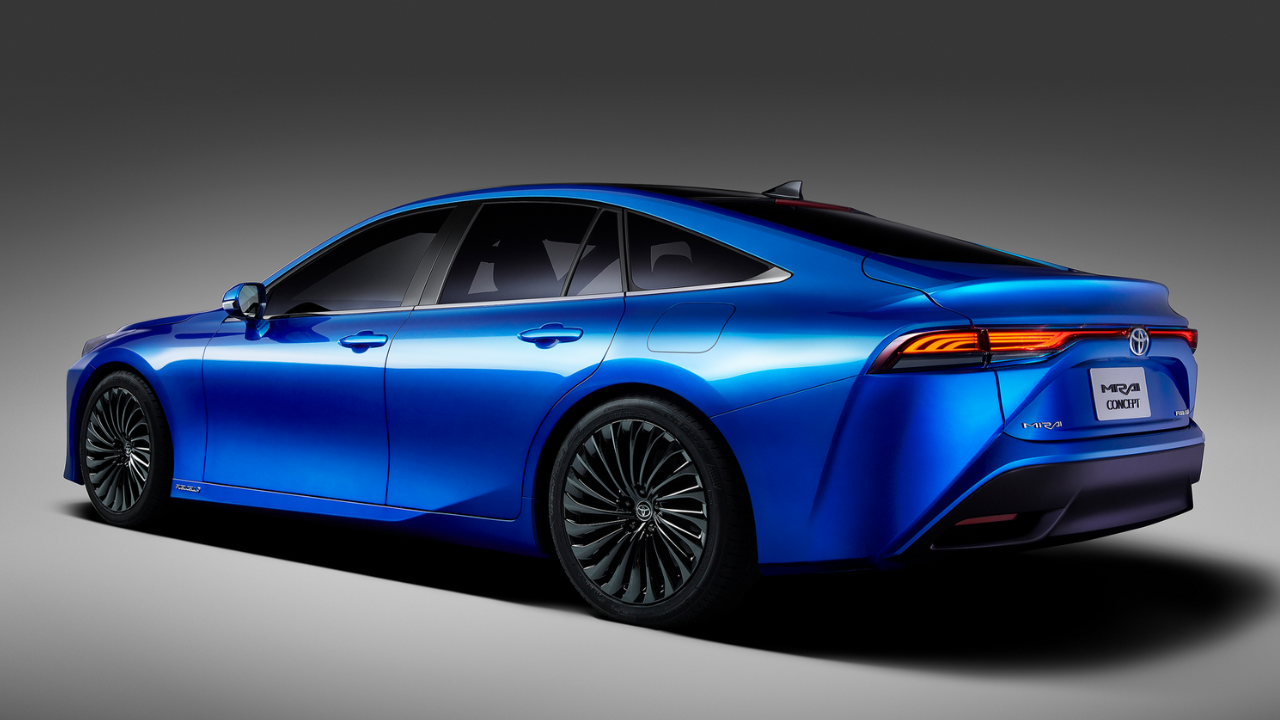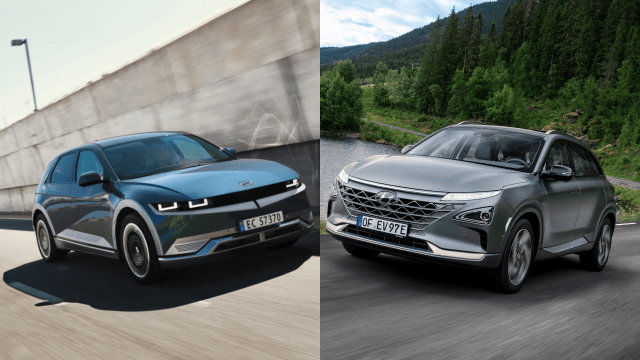We’ve heard a lot about hydrogen as an alternative, potentially better, energy source for vehicles instead of simply electricity, but although they’re both worthwhile alternatives to combustion engine (ICE) vehicles, they have advantages and disadvantages depending on the application.
Let’s look into those advantages and disadvantages, based on the technology that we currently have, and see when hydrogen tech is better than electric tech in vehicles.
Are hydrogen cars better than electric ones?
While there are key areas where hydrogen vehicles may outperform electric vehicles, carmakers have gravitated more to EVs than to hydrogen fuel cell ones (while most cars are still fossil-fueled, at least). That being said, we’re likely going to see hydrogen vehicles on the road soon.
Commercial and freight
It has been widely argued that hydrogen vehicles make a lot of sense in commercial and freight capacities, and personally, this is where I see the technology coming into its own (especially with bus networks and freight companies interested in the tech). It’s considered that hydrogen vehicles can travel for longer distances than electric alternatives, which could alleviate the biggest concern people have with EVs. This makes them a great choice for commercial vehicles, especially when hydrogen fuel cells are lighter than EV batteries and require much less time to refuel (similar to that of an ICE vehicle). All of this said, EV charging times are improving, as are maximum distances.
While hydrogen networks are underdeveloped compared to electric vehicle recharge stations around the world, this doesn’t mean that fleet companies would be necessarily impacted, especially if they installed refuelling stations at depots without dependency on a pre-existing network. Because hydrogen is quite forgiving in how it can be stored (being storable in either a liquid or gaseous form), it may end up being a more economical choice to have hydrogen refuelling stations than electric storage and recharging stations for fleets, depending on where and how the fleet is operating.
Long distances and shorter refuel times
As we noted above, if you’re someone who drives long distances, for example, hydrogen vehicles could be the answer. The only problem with this point is that there aren’t many hydrogen-fuelled vehicles available in Australia (only available to fleet buyers at the moment) and there are only three hydrogen-refuelling stations across the country. But, as reported by Reuters, hydrogen fuel cells are less impacted by cold weather than electric vehicles.
These points may actually make a difference to a prospective car buyer, but again, EVs are catching up on range and charging speed. As the market matures, we’ll get a better indication of if hydrogen makes more sense than electricity in some capacities, but if we used these points as a place to start, it could be likely that long-distance 4WDs are one day sold with hydrogen capability, while inner city hatchbacks are sold as electric, just as an example.
Creation and storage
Compared to batteries, hydrogen can store more energy per unit, as reported by Stockhead. This means that, hypothetically, hydrogen could be transported easier than its electric alternative. This is a good moment to mention that hydrogen vehicles, in operation, convert hydrogen to electricity to power the vehicle, wherein which there’s significant energy loss per unit (losing up to 62 watts per 100 watts during the process, according to EVSE).
While this is alleviated by hydrogen having the lowest density of any gas, it’s still a worthwhile point to make on inefficiency, especially when you consider that, operationally, hydrogen requires much more effort to create than electricity, essentially adding in a middleman to convert electricity to hydrogen (to power the fuel), and then hydrogen back into electricity (to power the car).
By order of operation, hydrogen vehicles can’t be more efficient than electric vehicles, however, the greater storage density of the gas does bring a theoretical greater range.
Energy efficiency
As we stated above, electric vehicles are more efficient per unit than hydrogen vehicles. As reported by EVSE, electric vehicles require much less energy in the recharging process, but we can observe this on a production scale as well.
If we break it down stage by stage, then:
- Hydrogen production (electrolysis) requires electricity (and preferably green energy)
- With electricity being converted to hydrogen, hydrogen is then transported to the car
- The car is fuelled with hydrogen, which it then converts back into electricity.
This is noticeably more involved than the energy journey for electric vehicles, which is:
- Electricity is generated (preferably green energy, again) and potentially stored in an external battery
- The electricity is then used to charge the vehicle.
That’s quite the middleman to have, all things considered, and if we’re really trying to be more efficient, this extra step adds extra costs and more dependence on the grid. BMW claims that the overall efficiency of a hydrogen vehicle is only about half of that of an electric vehicle, however, in times when an excess of electricity is being created, hydrogen production for vehicle use could make a lot of sense.

Cost efficiency
A few of the points we’ve made so far have a bleed-through effect on cost. Because of the lack of hydrogen vehicle refuelling networks, the high costs of producing hydrogen and the added inefficiencies of hydrogen as a fuel source, hydrogen is a fairly expensive alternative to electricity, despite its advantages in some areas. Electric vehicles are also expected to be cheaper and easier to maintain than hydrogen vehicles.
At the very least, electric vehicles win on the cost front for the foreseeable future, but we’ll need to wait for hydrogen networks to be built out to see this change in any way.
Safety concerns
There are safety concerns for storing hydrogen, but experts have found that it’s not overly dangerous compared to fossil fuel alternatives.
“In many situations where a vehicle is located outdoors hydrogen is safer than conventional liquid fuels or natural gas,” a post from Washington State University reads.
“This in no way implies that hydrogen is not dangerous — there are many situations where hydrogen, like any other fuel or energy storage device, can cause an accident.”
So on this point, it’s not something to be particularly worried about. That being said, there aren’t many hydrogen vehicles internationally, so it’s difficult to do any quantitative analysis on the technology type when compared to EVs or ICE vehicles.
Electric vehicles have safety concerns as well. Tesla vehicles are often in the news over combustion concerns, but the fact of the matter is that there’s not enough data to reflect a genuine danger to users.
The verdict
There are clear areas in which electric vehicles have advantages over hydrogen vehicles and vice versa, however, the efficiency argument against hydrogen seems to be the greatest point, especially if we’re trying to look after the environment and not waste energy.
It seems likely that hydrogen may be used at least in some capacity as the technology improves, and that electric vehicles will continue to dominate the industry. As with every argument made in this piece, things could change. For example, we may see hydrogen-electric hybrids in the future, along with hydrogen-blended fuel alternatives for ICE vehicles.
I’m certainly excited for whatever form this transport revolution takes.
